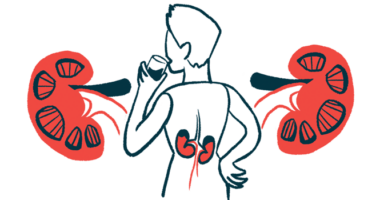Low Immune Protein Levels Predict Worse ANCA-associated Vasculitis Survival, Study Finds

Low levels of two immune system proteins increase the risk that a person who has just been diagnosed with ANCA-associated vasculitis will die or have a serious kidney problem, a study shows.
The findings on the complement proteins C3 and C4 applied to two forms of ANCA-associated vasculitis — granulomatosis with polyangiitis (GPA) and microscopic polyangiitis (MPA). ANCA-associated vasculitis’s full scientific names is antineutrophilic cytoplasmic antibody-associated vasculitis, or AAV.
Researchers published their study in the journal PLOS One. The title is “Hypocomplementemia is associated with worse renal survival in ANCA-positive granulomatosis with polyangiitis and microscopic polyangiitis.”
AAV can be classified as GPA, MPA, or eosinophilic granulomatosis with polyangiitis (EGPA), depending on its features. The severity of the disease can range from mild to life-threatening.
The complement pathway is part of the immune system’s natural defense against infections. It is composed of a group of proteins activated by invaders such as bacteria. The activation leads to a cascade of reactions that work together to fight an invader.
There are three complement pathways. One is known as the alternative complement pathway. Growing evidence, both in the lab and in animal models of ANCA-AAV, indicates that the alternative complement pathway is involved in GPA and MPA.
A group of researchers decided to look at the connection between complement protein levels and GPA and MPA patients’ outcomes. They were particularly interested in the link between C3 and C4 levels at the time of patients’ diagnosis and the severity of their disease.
The study included 74 AAV patients — 43 with GPA and 33 with MPA. Four had very low levels of complement, while the remainder had normal levels. All four in the low-complement group had kidney disease — a common issue in AAV patients.
They were also at higher risk of death and kidney deterioration. Aside from worse kidney symptoms, no disease-manifestation or biological differences could explain their worse survival outlook.
Lower than normal C3 and C4 levels “at diagnosis appears to be associated with worse overall and death-censored renal survival rates in ANCA-positive GPA and MPA patients, but it is not associated with the intensity of disease activity as it is currently assessed,” the researchers wrote.
Patients with lower complement protein levels might benefit significantly from complement-targeting therapies, they said. One reason is that these patients might be more resistant to the immunosuppressive therapies that are generally given to AAV patients.
The team called for larger studies on the feasibility of complement-targeting therapies for these patients.






